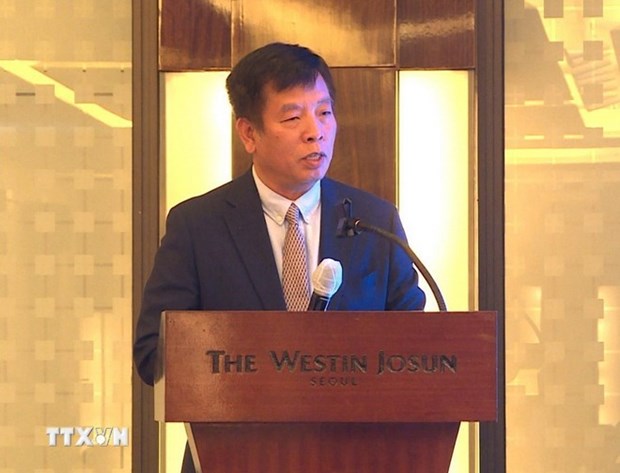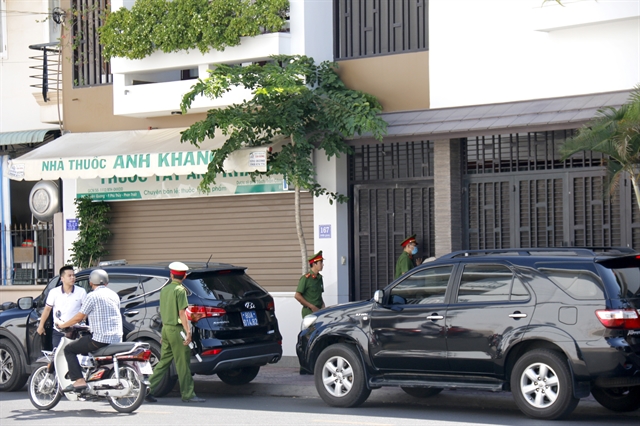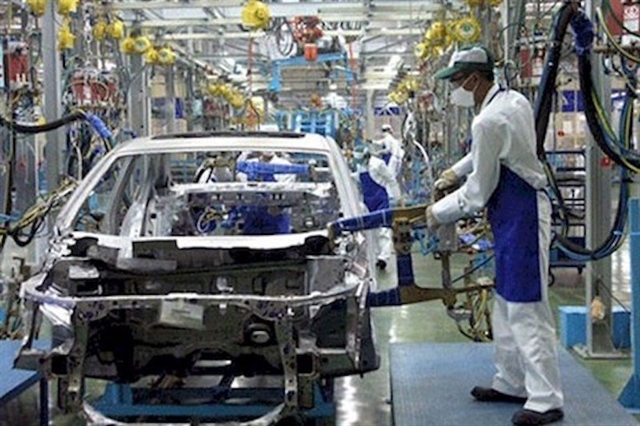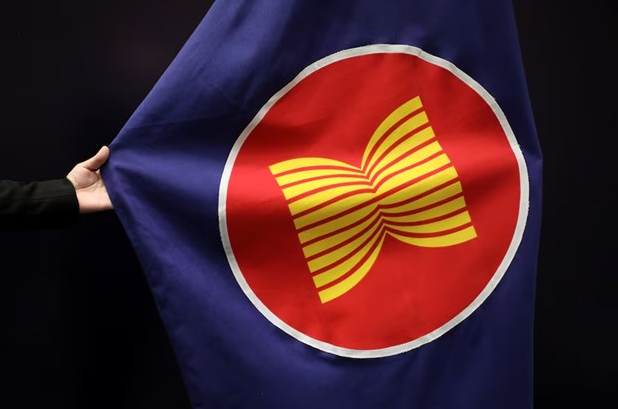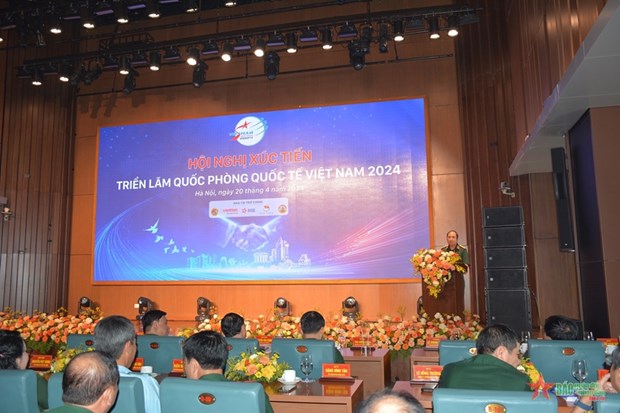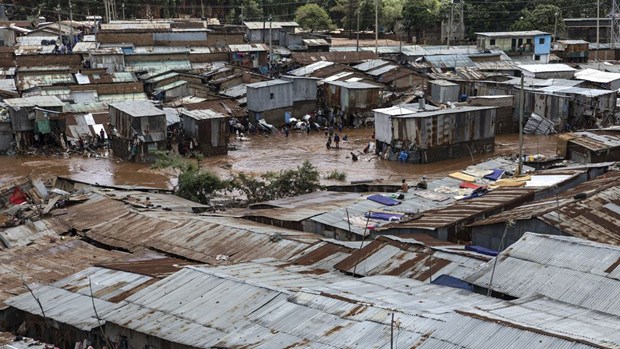 Politics & Laws
Politics & Laws
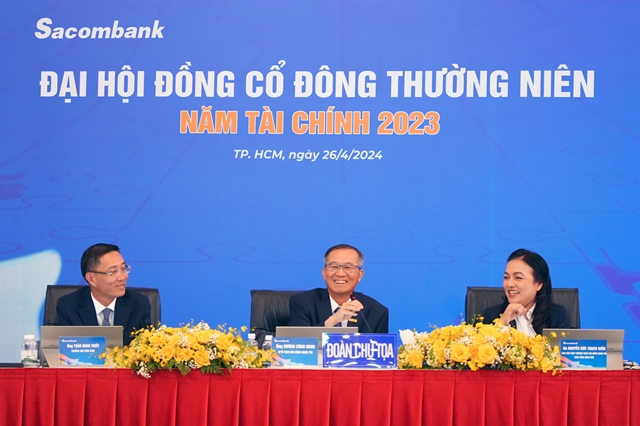
Việt Nam is calling on all East Sea claimants to urgently join forces in tackling the environmental degradation offshore before it’s too late, said a deputy minister yesterday.
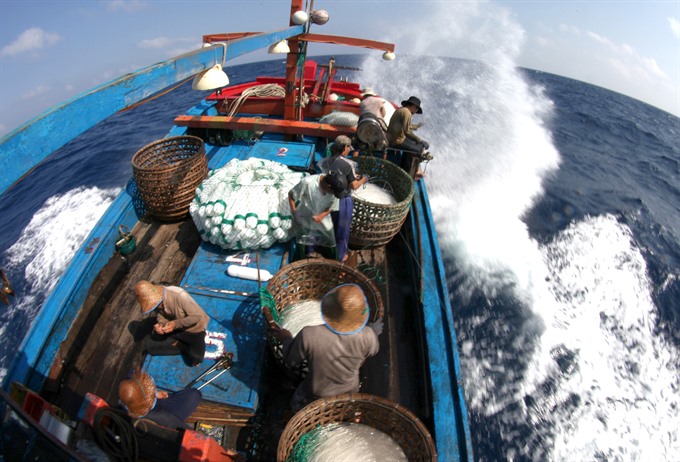 |
| Fishermen on their vessel going fishing offshore. Việt Nam calls on all East Sea claimants to urgently join forces in tackling the environmental degradation offshore before it’s too late. — VNS Photo Xuân Trường |
HẠ LONG, Quảng Ninh – Việt Nam is calling on all East Sea claimants to urgently join forces in tackling the environmental degradation offshore before it’s too late, said a deputy minister yesterday.
“It might even take a hundred of years for us to completely resolve the territorial dispute,” Foreign Affairs Deputy Minister Đặng Đình Quý said in a maritime workshop yesterday in the northern coastal city of Hạ Long, home to the famous tourism spot Hạ Long Bay.
“If we just stand by waiting for that to happen before addressing the environmental issues, the sea might be already dead by then”.
The two-day workshop – jointly organised by the Diplomatic Academy of Việt Nam (DAV) and the Delegation of the European Union to Việt Nam – attracted some 150 officials, international scholars and experts from Asia and Europe to exchange views and experiences of the two continents in promoting international maritime security, especially in times of an increasingly tense dispute in the East Sea (South China Sea).
China – unilaterally claiming sovereignty over more than 80 per cent of the international sea and exercising massive military build-up on artificial islands seized by force – is the biggest claimant among others including Việt Nam, the Philippines, Taiwan, Brunei and Malaysia.
Stretching beyond such competing territorial claims, the maritime security agenda in the East Sea now even covers the environmental issues which have taken a turn for the worse as early as two years ago when China started their land reclamations in the Spratly Islands en masse, Việt Nam Nature and Marine Environment Association Chairman Nguyễn Chu Hồi told Việt Nam News.
The Philippines last year estimated that China’s island-building activities so far have destroyed about 300 acres of coral reef in the East Sea, making its neighbours in the region likely to lose up to US$100 million a year, according to a spokesman for the Philippine Department of Foreign Affairs who told the New York Times last year.
“Coral reefs in the Spratly and Paracel Islands are key centres in distributing nutrition into the sea and act as breeding grounds for the fish,” Hồi said.
“Therefore they (the coral reefs) will determine the maintaining level of the marine life in the whole East Sea”.
He added that the impact of the coral losses will last for a long time and strongly affect the marine resources of all countries in the region - particularly harming the way of life of local fishermen - including the Chinese.
China’s land reclamation projects – carried out on the sand spits, islets and submerged reefs of the Spratly Islands stretching to more than 2,900 acres, according to the Pentagon – constantly raise concerns from the international community concerning damage caused to the biodiversity and ecological balance in the East Sea. Yet Beijing has never acknowledged the environmental consequences of their actions, instead calling the projects “green”, claimed the Chinese Ministry of Foreign Affairs Deputy Director-General Wang Xining earlier in May.
“All land reclamations do harm to the environment,” said Xue Li, director of the Department of International Strategy of China’s Institute of World Economics and Politics.
“But all international pressure make it difficult for China to recognise the problem publicly,” he told Việt Nam News.
Co-operation will lead to peace
Deputy Minister Quý affirmed that Việt Nam faces “big challenges in maritime security” as the Southeast Asian nation is largely dependent on the sea for survival.
Việt Nam has a long coastline running along the eastern border down to the south, stretching more than 3,500 kilometres and about 80 per cent of the population lives by the shore.
“Việt Nam now is involved in sea disputes, yet we clearly understand that the only solution is through peaceful co-operation,” Quý said.
“However such a solution is only achieved when all parties show a will towards co-operation to resolve the dispute in line with international laws”.
Markus Gehring, deputy director of the University of Cambridge’s Centre for European Legal Studies, said that he strongly encouraged a mechanism, particularly to work on the environmental issues in the East Sea, in which all parties involved could recognise the common interests they share and benefits of co-operation.
“If they (the claimants) can start a dialogue on a much more concrete, low-level discussion of shared interests in preserving certain natural resources, they will also build more confidence to discuss some of the more difficult security issues,” he said.
“There is very little information regarding environmental issues in the South China Sea now. The first step for all is to share the information and be transparent about what had happened”.
Xue believed that anything could be done under a co-operation framework, and environmental co-operation will be the easiest of all.
However, the Chinese Government will put any form of co-operation on hold until a final ruling on the arbitration case over the South China Sea is made, said Xue.
In 2013, the Philippines filed a case against China to the Permanent Court of Arbitration questioning the legality of China’s unilateral "nine-dotted line" claim over the South China Sea under the United Nations Convention on the Law of the Sea (UNCLOS). China boycotted the tribunal, saying it will not recognise the judgment.
The tribunal is expected to deliver the decision in just a few weeks. – VNS



